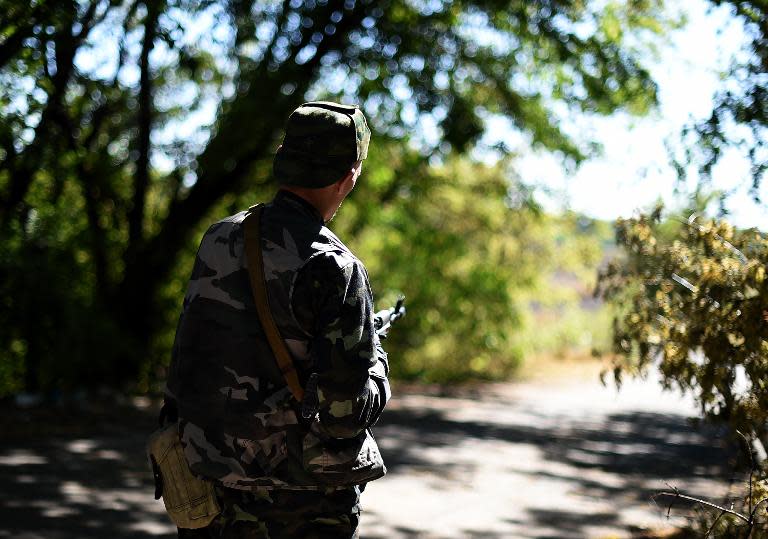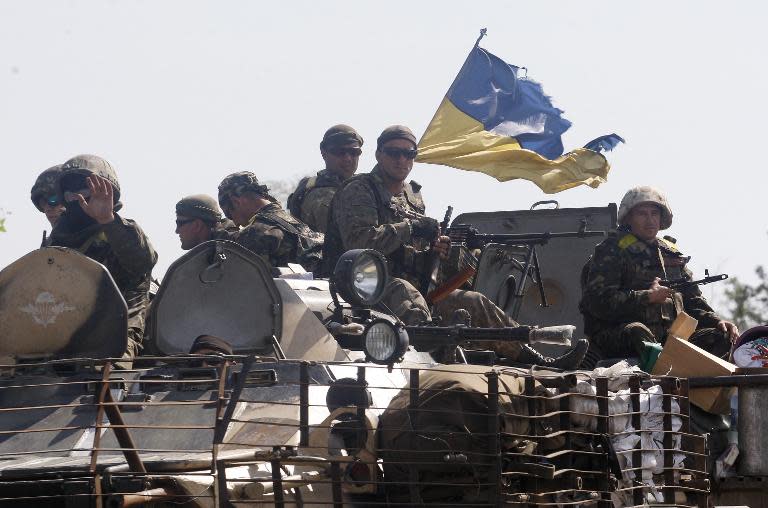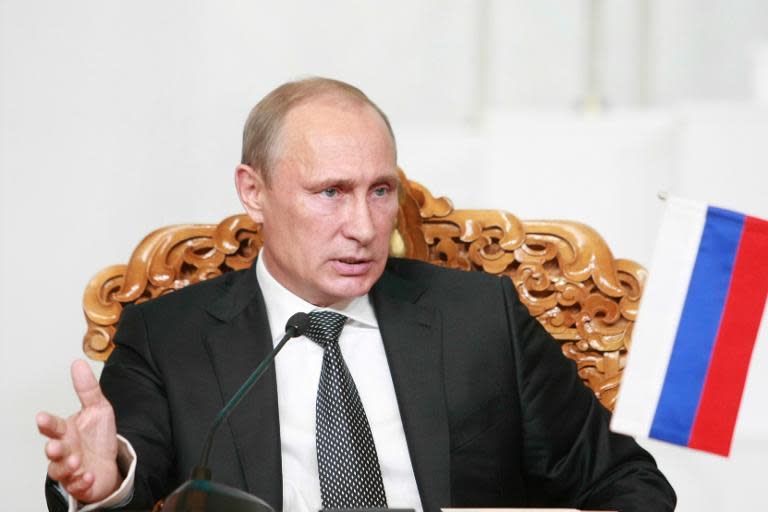Body bags make Russians reflect on Ukraine war
When Russian paratrooper Nikolai Kozlov was deployed to Crimea to help Moscow take over the peninsula from Ukraine, his parents were proud of him. Six months later Kozlov is disabled for life, an amputee now recovering in hospital from wounds incurred on a Kremlin-orchestrated covert mission to Ukraine to prop up separatists fighting against Kiev. The paratrooper's uncle, Sergei Kozlov, said his brother asked him to help take care of the young man in the hospital. "Seva called yesterday and said that Kolka had been wounded in Ukraine, and had lost a leg, or both legs -- I didn't ask," Kozlov said, referring to his brother and nephew by their nicknames. Kozlov's written comments to AFP are part of an emerging trickle of first-hand accounts which -- along with secret burials -- are providing grim evidence of Russia's intervention in Ukraine amid a virtual blackout imposed by state television. The Committee of Soldiers' Mothers, the main rights group representing the military, has said up to 15,000 soldiers could have been sent into Ukraine over the past two months. An adviser to Ukraine's defence minister, Oleksandr Danylyuk, said on Facebook this week 2,000 Russian troops had been killed in Ukraine. President Vladimir Putin has denied Russian troops are in Ukraine. He said the handful of soldiers captured by Kiev authorities had wandered into the ex-Soviet country by accident. On Wednesday Putin unveiled a seven-point plan to resolve the conflict in eastern Ukraine, and said a deal with Kiev could be signed as early as Friday. Crimea was annexed in March by Moscow following a disputed referendum in which residents voted to join Russia. But the patriotic euphoria triggered by the return of the Black Sea region, which was under Moscow's control before being handed to Ukraine in 1954, is slowly ebbing in Russia. Most Russians are still unaware that Russian troops are fighting in the fellow Slavic country -- or prefer to look the other way. "I have not heard anything about any war," Olga Burtseva, a mother of three, told AFP. "No one crossed the borders, and I believe no one has declared war." A respected polling agency, the Levada Centre, said last week two-thirds of respondents did not believe Russia and Ukraine were engaged in a war. But Russians' readiness to support what many call a fratricidal conflict has dropped dramatically over the past months -- to 41 percent in July from 74 percent in March, the pollster said. - 'Put Putin on trial' - The Kremlin's reluctance to admit its troops are in Ukraine has drawn comparisons to the initial Soviet reluctance to acknowledge Moscow went to war in Afghanistan in 1979. But experts say the authorities will not be able to keep the veil of secrecy on its intervention for much longer. Volunteer groups are sprouting online to fill in the official black hole on information about dead and missing servicemen. A recently-created Facebook group called "Cargo-200 from Ukraine to Russia" -- a reference to the Russian military term for body bags -- says Putin should be sued in an international tribunal over "mass killings of Ukrainians and Russians, in a war against Ukraine". Many Russians who try to make sense of their country's role in the conflict say they are against war. "We have no business interfering in another country's affairs," said Irina Shteinman, a grandmother of four, adding she would support an anti-war rally. But Russia's streets have largely been empty. On Sunday, some 15 activists picketed in central Moscow brandishing placards like "War with Ukraine is a shame and crime." Most passersby ignored them. - 'Betrayal of soldiers' - Satirist Viktor Shenderovich, who took part in the protests, said some two million to three million Muscovites may be critical of the Kremlin but are discouraged by a clampdown after opposition protests in 2011-12. "Attitudes to war will change when people will themselves feel it, through price hikes or through blood like the uncle of the paratrooper who lost his legs," Shenderovich told AFP. The soldier's uncle called Putin a "monster," noting he had always been critical of the Kremlin strongman. But Kozlov's father Vsevolod said he is proud of his son, who is in his early 20s, and defended Putin's policies. "He swore an oath and fulfilled his orders honestly," Vsevolod Kozlov said on Moscow Echo radio. "No matter what he did, he is right." Critics say that apart from being a crime against the fellow Slavic country, the war is also a betrayal of Russian soldiers who fight without dog tags and then are buried in secret, their families unable to receive a pension. "If the war cannot be stopped it should at least be declared," wrote Kremlin critic Valery Panyushkin.





